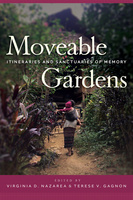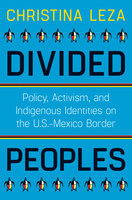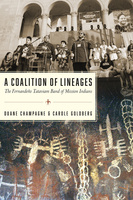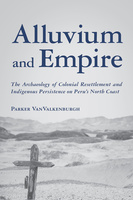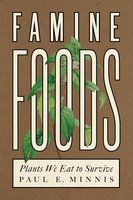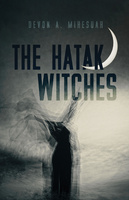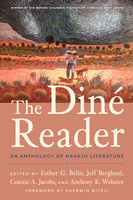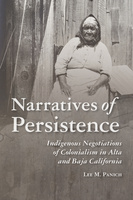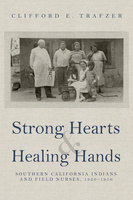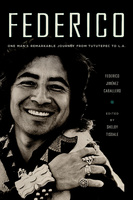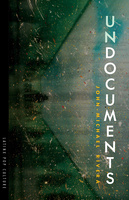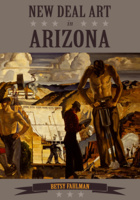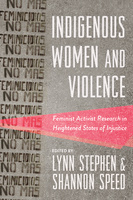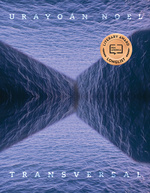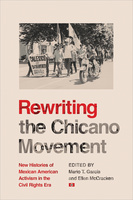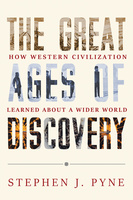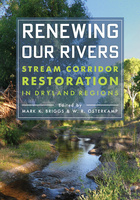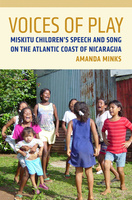The University of Arizona Press is the premier publisher of academic, regional, and literary works in the state of Arizona. They disseminate ideas and knowledge of lasting value that enrich understanding, inspire curiosity, and enlighten readers. They advance the University of Arizona’s mission by connecting scholarship and creative expression to readers worldwide.
Moveable Gardens
Itineraries and Sanctuaries of Memory
Moveable Gardens explores the ways people make sanctuaries with plants and other traveling companions in the midst of ongoing displacement in today’s world. This volume addresses how the destruction of homelands, fragmentation of habitats, and post-capitalist conditions of modernity are countered by the remembrance of tradition and the migration of seeds, which are embodied in gardening, cooking, and community building.
Divided Peoples
Policy, Activism, and Indigenous Identities on the U.S.-Mexico Border
Calling the Soul Back
Embodied Spirituality in Chicanx Narrative
A Coalition of Lineages
The Fernandeño Tataviam Band of Mission Indians
The experience of the Fernandeño Tataviam Band of Mission Indians is an instructive model for scholars and provides a model for multicultural tribal development that may be of interest to recognized and nonrecognized Indian nations in the United States and elsewhere.
Alluvium and Empire
The Archaeology of Colonial Resettlement and Indigenous Persistence on Peru’s North Coast
Alluvium and Empire examines the archaeology of Indigenous communities and landscapes that were subject to Spanish colonial forced resettlement during the sixteenth century. Written at the intersections of history and archaeology, the book critiques previous approaches to the study of empire and models a genealogical approach that attends to the open-ended—and often unpredictable—ways in which empires take shape.
Famine Foods
Plants We Eat to Survive
How people eat today is a record of food use through the ages, and Famine Foods offers the first ever overview of the use of alternative foods during food shortages. Paul E. Minnis explores the unusual plants that have helped humanity survive throughout history.
The Hatak Witches
A baffling museum murder that appears to be the work of twisted human killers results in an unexpected and violent confrontation with powerful shape-shifters for Choctaw detective Monique Blue Hawk. Blending tribal beliefs and myths into a modern context, The Hatak Witches continues the storyline of Choctaw cosmology and cultural survival that are prominent in Devon A. Mihesuah’s award-winning novel, The Roads of My Relations.
The Diné Reader
An Anthology of Navajo Literature
The Diné Reader: An Anthology of Navajo Literature is a comprehensive collection of creative works by Diné poets and writers. This anthology is the first of its kind.
Narratives of Persistence
Indigenous Negotiations of Colonialism in Alta and Baja California
Danzirly
Danzirly is a stunning bilingual poetry collection that considers multigenerational Latinx identities in the rapidly changing United States. Winner of the Academy of American Poets’ Ambroggio Prize, Gloria Muñoz’s collection is an unforgettable reckoning of the grief and beauty that pulses through twenty-first-century America.
Strong Hearts and Healing Hands
Southern California Indians and Field Nurses, 1920–1950
In 1924, the United States began a bold program in public health. The Indian Service of the United States hired its first nurses to work among Indians living on reservations. Strong Hearts and Healing Hands shows how field nurses and Native people formed a positive working relationship that resulted in the decline of mortality from infectious diseases. With strong hearts, Indians eagerly participated in the tuberculosis campaign of 1939–40 to x-ray tribal members living on twenty-nine reservations. Through their cooperative efforts, Indians and health-care providers decreased deaths, cases, and misery among the tribes of Southern California.
Federico
One Man’s Remarkable Journey from Tututepec to L.A.
From the day he was born, Federico Jiménez Caballero was predicted to be a successful man. So, how exactly did a young boy from Tututepec, Oaxaca, become a famous Indigenous jewelry artist and philanthropist in Los Angeles? Federico tells the remarkable story of willpower, curiosity, hard work, and passion coming together to change one man’s life forever.
Undocuments
UNDOCUMENTS is an expansive multi-genre exploration of Greater Mexican documentality that reveals the complicated ways all Latinx peoples, including the author, become objectified within cultures. John-Michael Rivera remixes the Florentine Codex and other documents as he takes an intense look at the anxieties and physical detriments tied to immigration.
Indigenous Women and Violence
Feminist Activist Research in Heightened States of Injustice
Indigenous Women and Violence offers an intimate view of how settler colonialism and other structural forms of power and inequality created accumulated violences in the lives of Indigenous women. The chapters in this book are engaged, feminist, collaborative, and activism focused, conveying powerful messages about the resilience of Indigenous women in the face of violence and systemic oppression.
Transversal
Poems
Transversal takes a groundbreaking, disruptive approach to poetic translation, opening up alternative ways of reading as poems get translated or transcreated into entirely new pieces. In this collection, Noel masterfully examines his native Puerto Rico and the broader Caribbean as sites of transversal poetics and politics.
Rewriting the Chicano Movement
New Histories of Mexican American Activism in the Civil Rights Era
Rewriting the Chicano Movement is an insightful new history of the Chicano Movement that expands the meaning and understanding of this seminal historical period in Chicano history. The essays introduce new individuals and struggles previously omitted from Chicano Movement history.
The Great Ages of Discovery
How Western Civilization Learned About a Wider World
The Great Ages of Discovery is a fascinating conceptual framework for understanding the past 600 years of exploration by Western civilization and its relationship to contemporary society. Stephen J. Pyne expertly organizes the vast narrative of Western exploration into three distinctive ages of discovery.
Renewing Our Rivers
Stream Corridor Restoration in Dryland Regions
Renewing Our Rivers guides readers through the main steps in designing and implementing successful dryland stream corridor restoration. Ecologists, geomorphologists, and hydrologists from Australia, Mexico, and the United States share their case studies and key lessons learned for successful restoration and renewal of our most vital resource.


